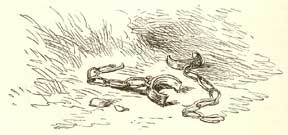Ambiguities present in previous legislation led the U.S. Congress to pass the Fugitive Slave Act of 1793.
Slave hunters were allowed to capture an escapee in any territory or state and were required only to confirm orally before a state or federal judge that the person was a runaway. The captive was not entitled to a trial by jury and the judge's decision was terminal. A person hiding an escaped slave could be fined $500 – an expensive penalty in those days.
 The law was opposed in many Northern states; several reacted by enacting legislation to protect free black Americans and fugitive slaves. These "personal liberty laws" compelled a slave catcher to furnish corroborative proof that his captive was a fugitive and frequently accorded the accused the rights to trial by jury and appeal. Laws in some states made it easier to extradite a runaway if his or her slave status were confirmed.
The law was opposed in many Northern states; several reacted by enacting legislation to protect free black Americans and fugitive slaves. These "personal liberty laws" compelled a slave catcher to furnish corroborative proof that his captive was a fugitive and frequently accorded the accused the rights to trial by jury and appeal. Laws in some states made it easier to extradite a runaway if his or her slave status were confirmed.
As it turned out, in general the Fugitive Slave Act was inconsistently enforced and provoked ill feeling between northern and southern states.
In Prigg v. Pennsylvania (1842), the United States Supreme Court determined that 'personal liberty laws' were unconstitutional: They interfered with the Fugitive Slave Act. The Court held that while states were not compelled to enforce the federal law, they could not override it with other enactments.
Prigg induced numerous Northern states to amend their laws, which specified that law enforcement officials and jurists refrain from doing anything about runaway slaves. The only alternative left to slave catchers was to kidnap runaways or drag them before federal judges who were not held to state statutes.